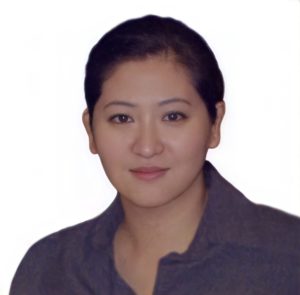Position Spotlight: Recovery Care Coordinator
Rachel Ch ang began her career as a research assistant in a molecular biology lab at Columbia University. It was her work as a clinical service manager that sparked interest in community health. Prior to joining Contessa as Recovery Care Coordinator, she worked in a ventilation unit as a staffing nurse, then for a concierge nursing company and a Managed Long Term Care insurance company as an assessment nurse while pursuing her Doctor of Nursing Practice program at Columbia University.
ang began her career as a research assistant in a molecular biology lab at Columbia University. It was her work as a clinical service manager that sparked interest in community health. Prior to joining Contessa as Recovery Care Coordinator, she worked in a ventilation unit as a staffing nurse, then for a concierge nursing company and a Managed Long Term Care insurance company as an assessment nurse while pursuing her Doctor of Nursing Practice program at Columbia University.
In her spare time, Rachel daydreams about being a caterer and uses her former laboratory skills to perform cooking experiments for recipes she dreams up to test on her friends. “Nothing tests real friendship like burning all your friends’ pots.”
What does a Recovery Care Coordinator do at Contessa?
As a Recovery Care Coordinator (RCC), I am the first face a patient sees when they come through Mount Sinai’s Hospitalization at Home program. RCC’s screen the medical charts of Emergency Department patients, monitor their progress and determine if they are an appropriate candidate for our program. We perform bedside home safety, social assessment and coordinate admission to ensure patients can be sent home promptly and safely to continue their hospital-level care in the comfort of their home.
Why did you choose this as a career path?
I have personally and professionally witnessed the lack of care coordination that fragments care within the community, which lowers the quality of health care for patients. This is why I went back to nursing with the specific goal of pursuing a doctoral project that uses technology to promote better chronic disease management and care coordination for seniors. Contessa, a start-up technology company using innovative models to deliver acute hospital care and case management to treat the geriatric population in the home, has obvious appeal to me.
How does the work you do at Contessa differ from other jobs?
There is never a dull day! As a pioneer program at Mount Sinai, Hospitalization at Home is so full of promise and challenge. Our work here in the hospital is really to educate hospital staff about what we do, advocate for the patients and drive changes in the hospital system. Unlike my previous jobs that often focused on narrow range of tasks or area of skills, this job requires clinical knowledge, drive, perseverance, assertiveness, intellectual acuity and people skills.
What is the best part of your job?
My team. The management and HR of Contessa seem to be quite adept at hiring the best nurses, recruiting former teaching assistants, open-heart surgery nurses, entrepreneurs and even doctors. Despite their vast experience, they are never reluctant to perform more straightforward tasks like cleaning COVID kits or delivering medication in the middle of the night. I am so proud and excited to be in the company of such an eclectic group.
What’s the most challenging part of your job?
Finding an optimal formula of clinical operation is very challenging. We coordinate with a myriad network of vendors in the largest health care system in New York City that consists of four hospitals servicing thousands of patients. Coordinating the logistics among these separate elements and overcoming inertia of old culture can be a challenge.
What inspires you to come to work every day?
Something my teammates and I have in common is that none of us ever give up. We will keep trying until we figure it out. Each of us believes that Hospitalization at Home is the future of healthcare and is improving healthcare delivery. This is especially true each time we offer this program to a patient who has been waiting for hours in the Emergency Department, watching their eyes light up after telling them they can go home and still get the care they need in the comfort of their home. They all comment what a great program Hospitalization at Home is. That is all we need to hear to keep going.
